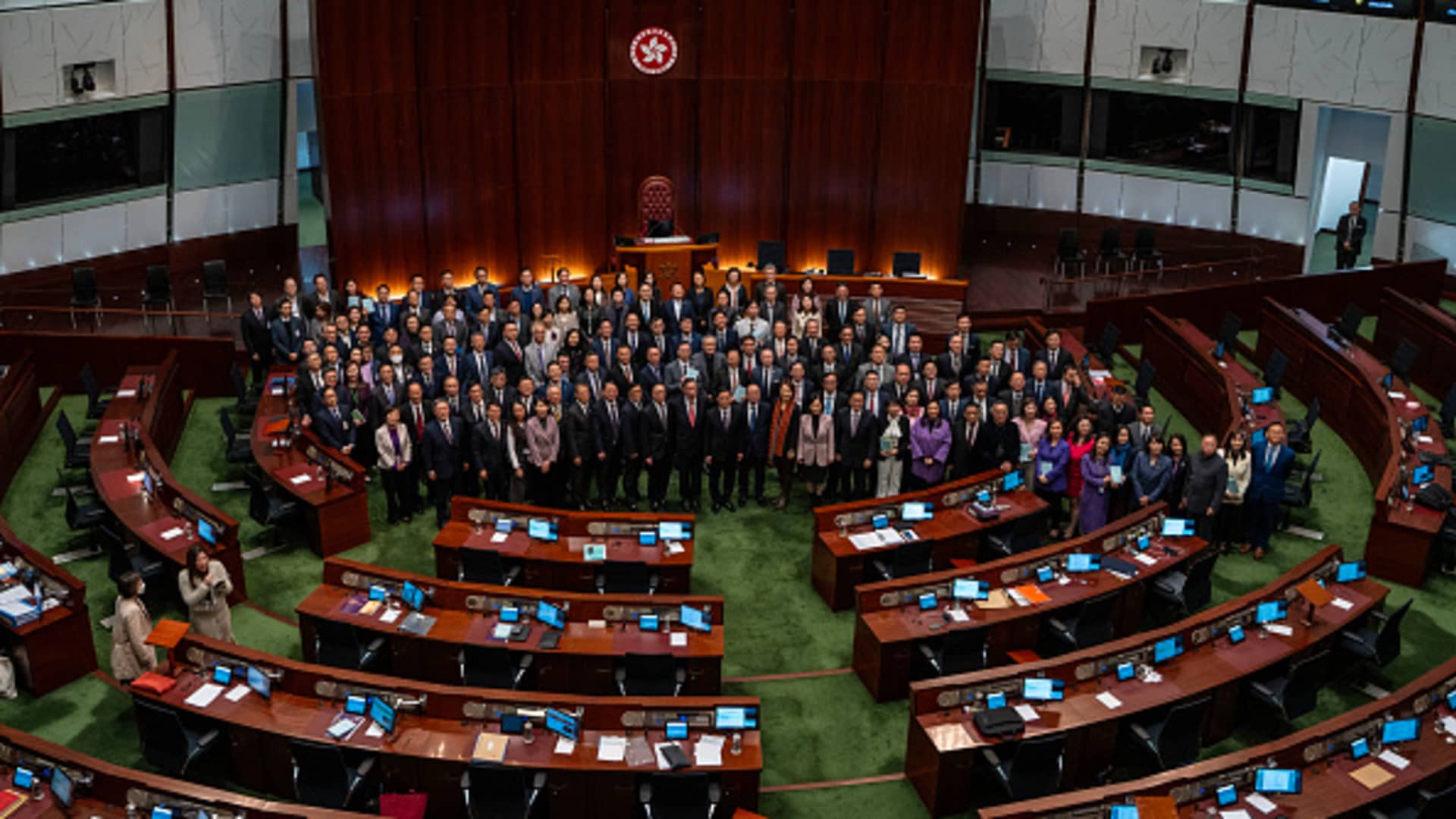Lawmakers, government officials, and Hong Kong Chief Executive John Lee are posing for a group photo inside the chamber of the Legislative Council complex after passing the Safeguarding National Security Bill in Hong Kong, China, on March 19, 2024.
Nurphoto | Nurphoto | Getty Images
Hong Kong’s new national security bill that seeks to “prevent, suppress and punish espionage activities” has left analysts divided on its social and economic ramifications.
Lawmakers in Hong Kong passed the Safeguarding National Security Bill, which has been under scrutiny for provisions such as life imprisonment for ‘treason’ and ‘insurrection,’ in a special session on Tuesday.
Dominic Chiu, senior analyst at China & Northeast Asia at Eurasia Group said the urgency with which the bill was passed was “highly unusual” and meant that it was aimed to curtail the risk of a prolonged debate that could potentially lead to international opposition.
Hong Kong’s Legislative Council had introduced the bill known as Article 23 on March 8, and Chief Executive John Lee had urged the need to pass the law “as soon as possible” given an “increasingly complex” geopolitics backdrop.
Chiu highlighted that the bill was deliberated on, amended, and passed within 11 days — a record time in Hong Kong’s legislative history.
This was therefore likely a deliberate effort to catch foreign observers of Article 23 off guard by minimizing time for external scrutiny and criticism.
Dominic Chiu
Senior analyst, China & Northeast Asia, Eurasia Group
Some industry observers, however, expect the stringent rules to be good for business.
“Passing the bill would help improve the long term stability and competitiveness of the business environment in Hong Kong,” William Ma, chief investment officer at GROW Investment Group told CNBC, adding it could strengthen Hong Kong as a financial hub by bringing in more global capital.
Dickie Wong, executive director of research at Kingston Securities said that from a local government’s point of view the new law in Hong Kong could also potentially attract investment by “creating a more secure business environment.”
Wong, however, said some foreign investors could take a more cautious approach toward Hong Kong as they may have concerns regarding the law’s impact on the city’s autonomy.
Who is affected?
Eurasia Group’s Chiu said U.S. government-funded news outlet, Radio Free Asia, could become a top target and could withdraw its operations from Hong Kong soon following the laws enactment.
He also noted that other media outlets, non-governmental organizations, dissidents and human rights organizations overseas “that are involved in the lobbying of foreign governments to take punitive action against the Hong Kong government” could also be potential targets.
— CNBC’s Lee Ying Shan, Chery Kang and Yolande Chee contributed to this story

